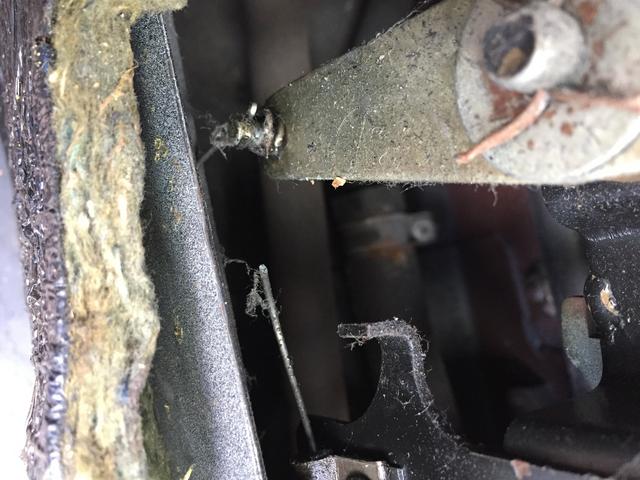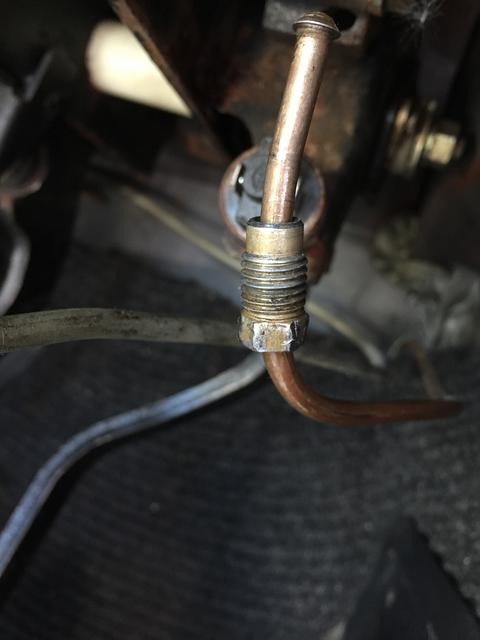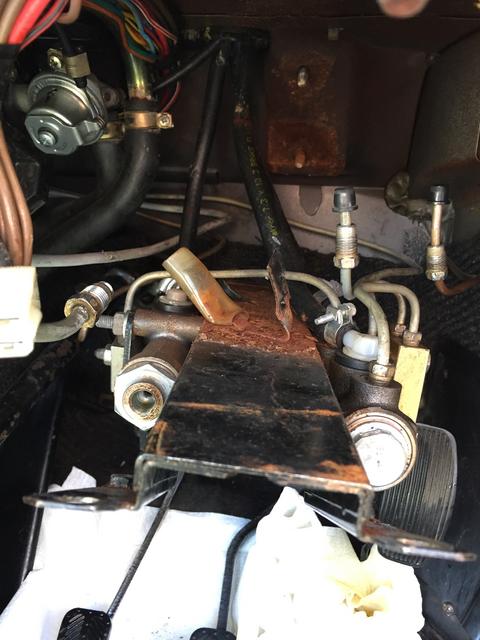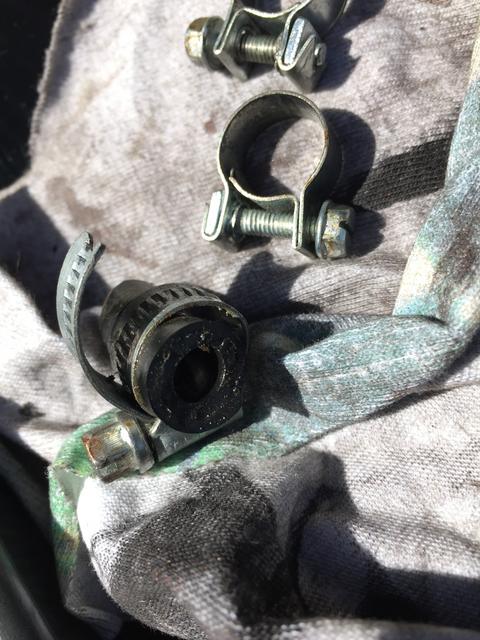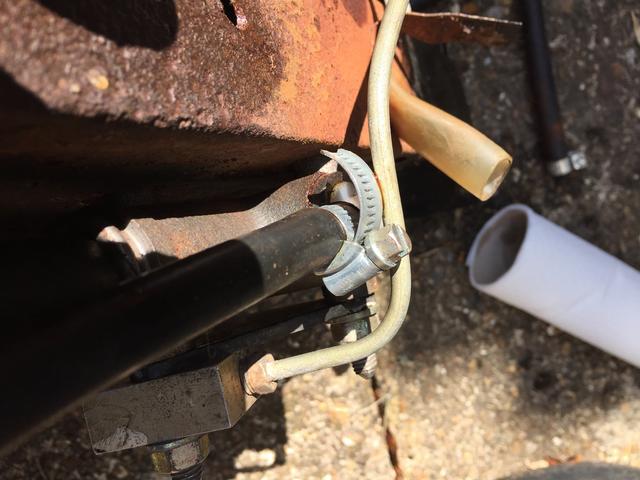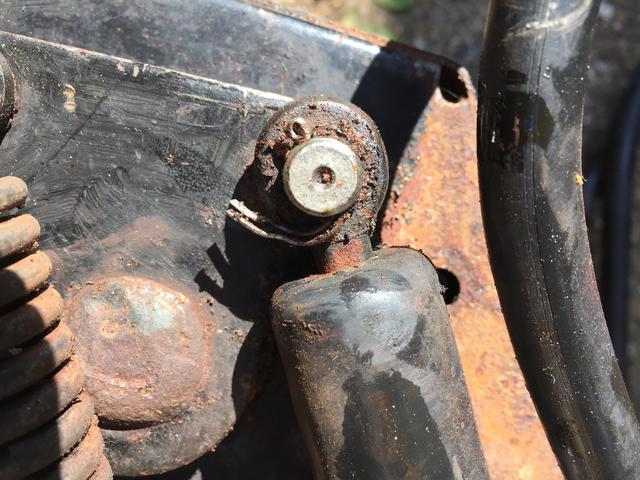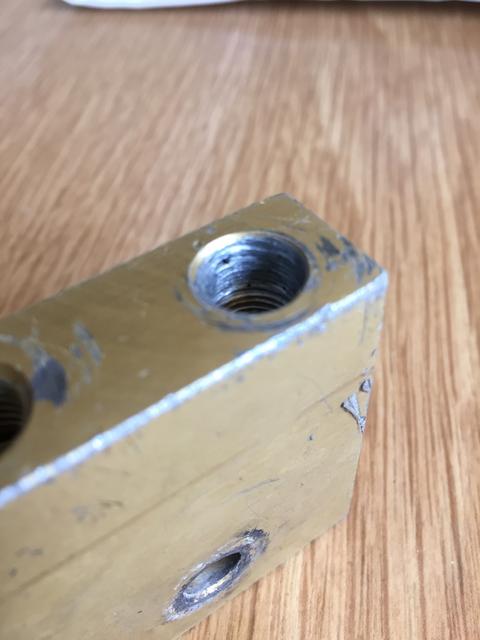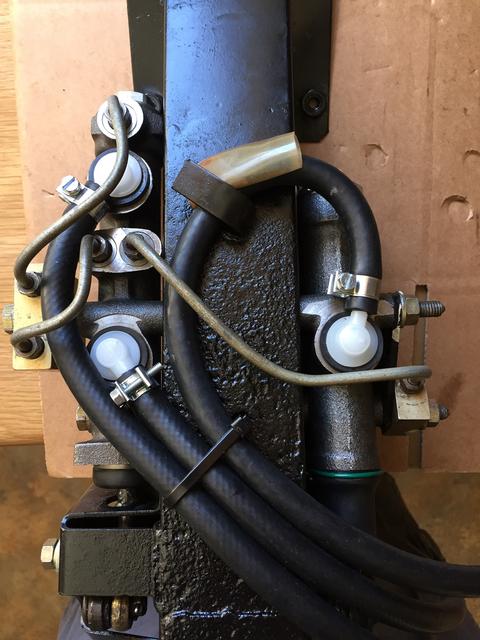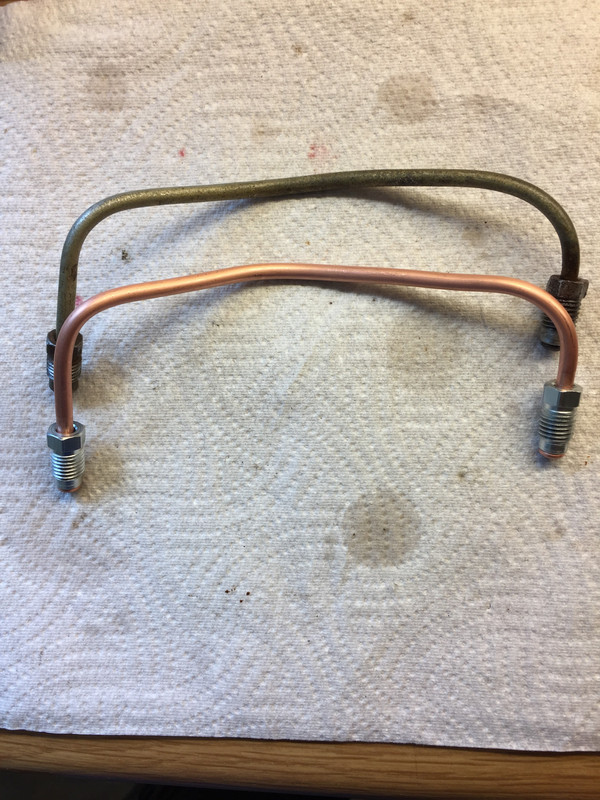I decided to bleed the brakes as it was probably about 4 years since the fluid was replaced after the restoration so now was as good a time as any...what followed ended up as a three week ball ache of work.
I bled the two rear callipers just fine starting with the wheel furthest from the master cylinder....half way through bleeding the near side front calliper the mater cylinder decided that was enough of that and promptly failed. No more ability to pump the brake pedal it simply went to the floor, dam it!
Having been through this with my 1500 X1/9 I knew what a right royal 'bar steward' of a job it is to replace the master cylinder...and all the additional work you end up doing because of 'whilst you have this apart you may as well...'
Having put off replacing the choke cable that I broke months and months ago I decided I'll do this job as well. It involves removing both seats, passenger seat belt and anchor points, sill trim, drivers side anchor points, spare wheel well cover and lifting the carpet enough to be able to undo the handbrake assembly to get to the choke lever that is attached to it!
The replacement cable inner I bought was a touch larger than the original but it just about fitted down the outer cable with plenty of grease to help.
Location of the choke lever.
Broken cable.
With that out of the way I could turn my attention to the brakes. With the seat already out the steering column is lower down out of the way to gain access to the pedal box under the dash.
The space is incredibly tight under the dash, there is very little room to manoeuvre and you need to be quite flexible to get in! At this point as I was undoing the fixed brake lines I noted the unions seemed to have been worked on by the previous hamfisted gorilla mentioned in other posts.
As you can see space is very tight...the corrosion was unexpected! At this point I decided that I didn't trust any of the previous work and would replace the clutch master cylinder and reservoir hoses at the same time and fully service the pedal box.
With the box eventually free from the car I could assess the damage. The pictures speak for themselves, incorrect sized clips for the pipes, rounded brakes unions, corrosion of the pedal box, seized clutch pivot bar, incorrect routing of hoses, a kink in the brake reservoir feed hose (potentially lethal), along with a stripped thread in the four way connecting block, how this wasn't leaking before hand I don't know. I had to obtain a replacement block from x19spares, I also cut off the brake pipe end flare, replaced the butchered union and remade the flare...
I replaced all the reservoir hoses and used the correct sized clips. The pivot shaft proved to be stubborn but eventually relented so I could remove it and grease it correctly. I treated the rust and painted the box, fitted new brake and clutch master cylinders and routed the hoses correctly over the top of the box.
Refitting the box went smoothly although the routing of those reservoir hoses is a challenge, with everything reconnected I set about bleeding the brakes, unfortunately I noted a leak from the crossover brake line that runs over the top of the box. Luckily you can drop the box just enough to get to the unions to remove the pipe. I made up a replacement and fitted it.
Finally I could now bleed the brakes, clutch and put the car back together but the car was about to throw me one last curve ball...the clutch slave cylinder started to leak....I mean What!? It was fine previously but now decided it was time to fail...I placed an order on Eurosport-uk for a new one and flexihose, fitting went ok but it added another 3 days to the work.
New slave in place.
So why do the master cylinders fail like this? It probably comes down to corrosion. Brake fluid is hydroscopic it will take moisture out of the atmosphere and if it is not replaced on a regular basis say every two years, it can cause corrosion to parts of the brake system. This is one possibility, another is that the brake piston and seal inside the master cylinder operate over a very small range of travel and over time and use the seal and cylinder bore create a wear pattern a bit like pistons in the engine wearing into the bore (running in) IE they bed in.
When I came to bleed the brakes I took the piston and seal past the normal range of operation by pressing the pedal all the way to the floor probably into a part of the cylinder bore that wasn't smooth like the bedded in part or maybe part of the bore that had a small amount of corrosion. There may have been small bits of debris in the cylinder as well, this extra travel of the seal probably tore the edge of it allowing fluid to bypass it or it could have picked up some debris and tore that way.
Whatever the case, I will now pressure bleed the brakes and clutch and will make sure to replace the fluid every two years!


